The National Marine Sanctuaries Webinar Series highlights the work of NOAA employees, from scientists to communicators, through a live presentation with a Q&A opportunity. All webinars are recorded and archived for all who could not attend, but are interested in the subject matter. Explore this compilation of webinars related to birds in the sanctuary system.
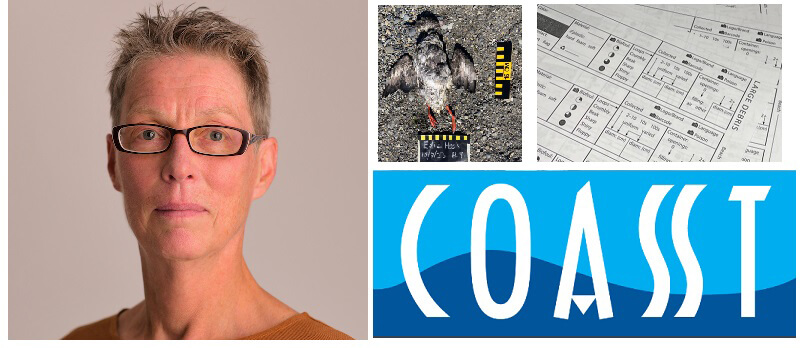
Learn more about this West Coast citizen science program involving hundreds of participants collecting monthly data on the identity and abundance of beach-cast birds and marine debris, with the goal of creating the definitive baseline against which the impacts of any near-shore catastrophe could be measured.
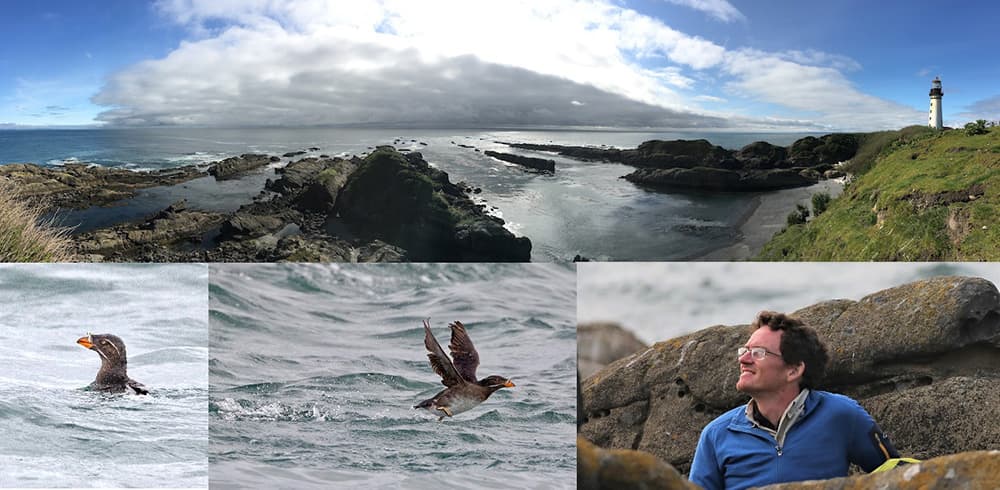
In this talk, biologist Eric Wagner will discuss the ongoing research on the rhinoceros auklets of Destruction Island (and beyond), and talk about what these furtive birds can show us about the larger world in which they try to make their living.
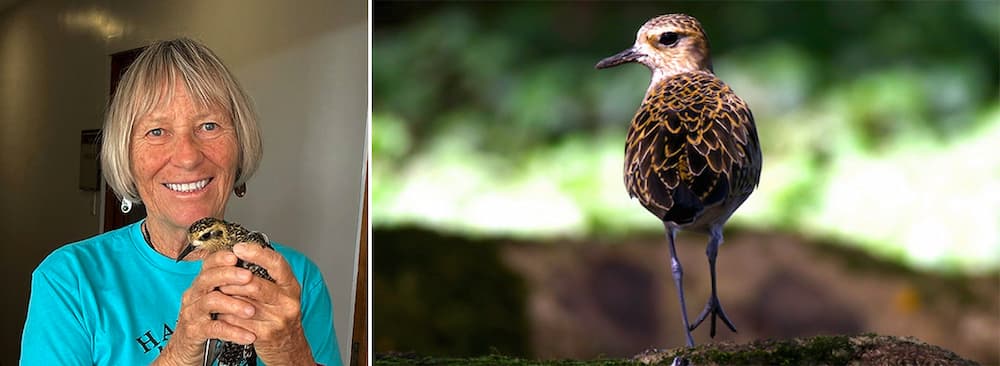
Because so many facts about Hawaii's remarkable Pacific Golden-Plovers, Kōlea, are still unknown, and so many Hawaiʻi residents and visitors watch and enjoy our plovers, the Hawaiʻi Audubon Society created a citizen science project that allows us to record our observations of these birds. Join us to hear Susan Scott, President of the Hawaiʻi Audubon Society and longtime plover lover, talk about Hawaii's Pacific Golden-Plovers.
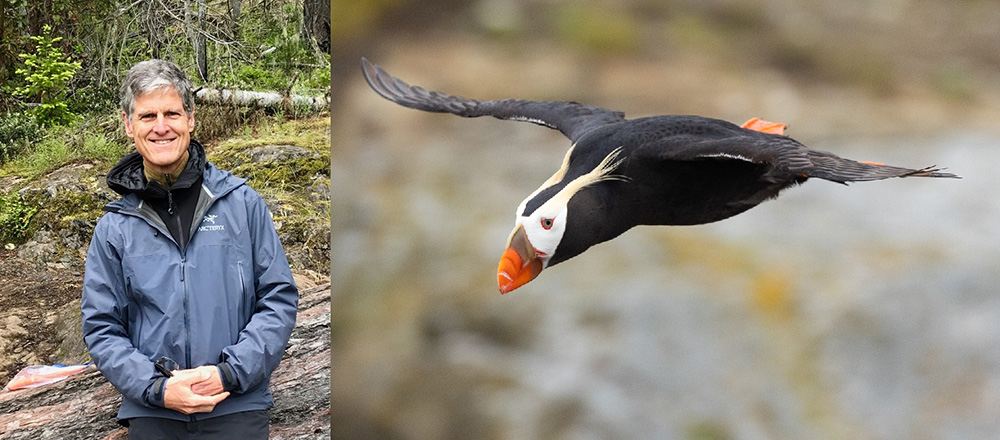
The Tufted Puffin is an iconic seabird that nests on offshore islands along Washington's outer coast and on two islands in the Salish Sea. Recent analyses suggest that the puffin is declining from the Gulf of Alaska south to California, with more dramatic declines at the southern end of its breeding range. Scott will describe the species' natural history, information on its status in Washington and beyond, and on research and conservation efforts to benefit the species locally.
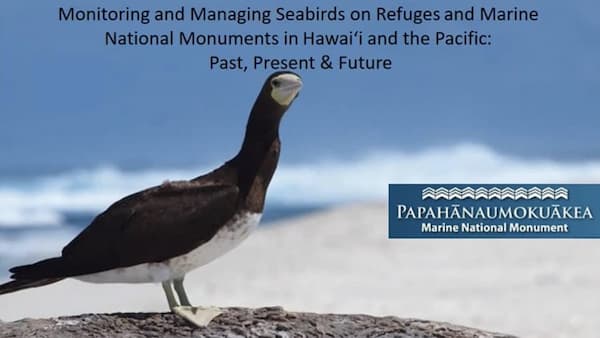
Millions of seabirds use the remote atolls and islands that are found around Hawaiʻi and the Central Pacific Ocean. Marine National Monuments and National Wildlife Refuges in Hawaiʻi and the Pacific have long been recognized as important breeding and roosting grounds for a number of seabird species. Join Jared Underwood as he describes past, current, and future monitoring efforts for seabirds across these important locations.
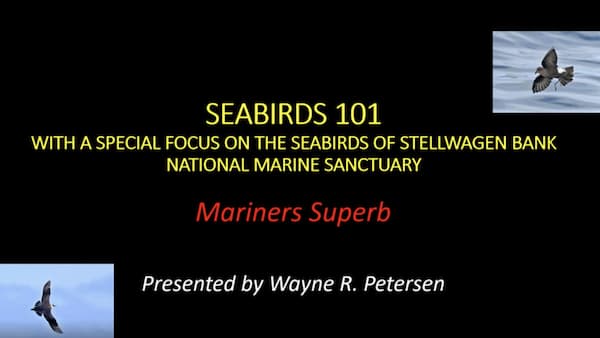
Seabirds are among the most widely traveled and extraordinary navigators in the bird world. Find out from Wayne Petersen, Mass Audubon's Important Bird Area Program Director, how these remarkable birds are supremely adapted to spend most of their lives in some of the most remote and hostile environments on the planet.
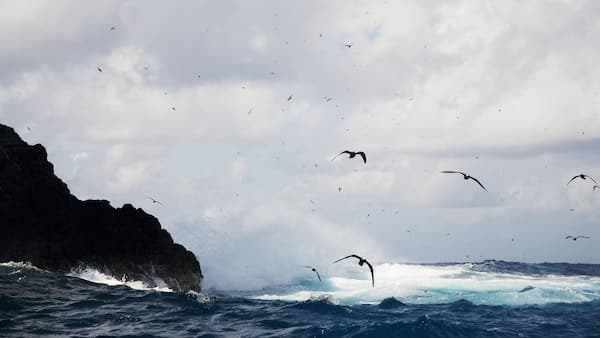
Join ecologist Ilana Nimz as she shares ten years of conservation efforts at Hōlanikū before focusing on the cryptic and understudied ʻAoʻū (Christmas/Chocolate shearwater; Puffinus nativitatis), one of the US Fish & Wildlife Service's 2021 Birds of Conservation Concern. The protected waters of Papahānaumokuākea Marine National Monument are critical for ʻAoʻū, as foraging grounds abundant with larval fish and protected from fisheries facilitates the recovery of the shearwater populations in the Northwestern Hawaiian Islands.
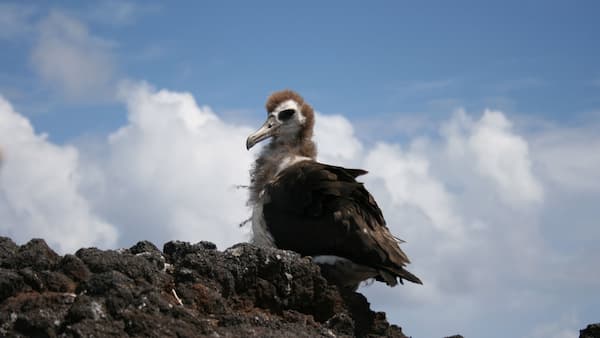
Listen and watch Hawaiʻi Artist and Author Caren Loebel-Fried as she reads her wonderful book "A Perfect Day for An Albatross" and hosts a short discussion about her recent visit to Midway Atoll National Wildlife Refuge in Papahānaumokuākea. After the book reading we highlight three species of Pacific albatross that cross the vast Pacific Ocean to forage in the productive waters off California and breed and nest in the predator-free remote tropical islets of Hawaiʻi.
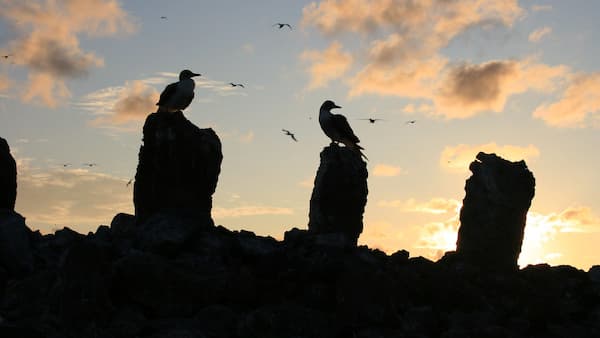
Prior to the early 1900s, the Papahānaumokuākea Marine National Monument was home to five species of songbirds that were found nowhere else in the word. After decades of natural resource exploitation on Laysan, two species, the Laysan Millerbird and the Laysan Apapane were lost to extinction. The three remaining species, Ulūlu (Nihoa Millerbird), Palihoa (Nihoa Finch) and ‘Ekupu‘u (Laysan Finch) are each endemic to their namesake island, and each at high risk of extinction due to their limited ranges. Successful translocations of Nihoa Millerbird and Laysan Finch have reduced their extinction risk in the short term until low-lying atolls and islands succumb to sea-level rise.
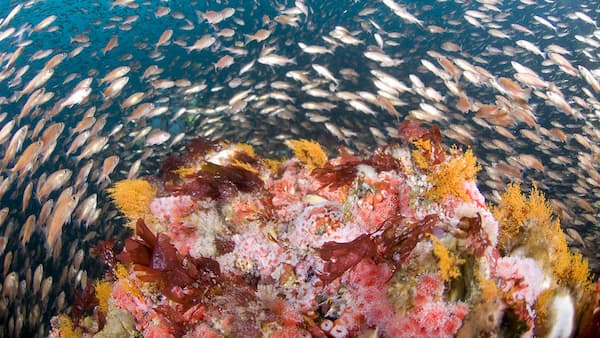
Seabirds that live their entire lives at sea (except for one very special time of the year!) have tremendous stories to tell about the health and ecology of the global ocean. What makes a seabird a seabird? What can you do to help seabirds? Learn about the amazing travels of Black-footed and Laysan Albatrosses in the Pacific Ocean and how you can see them in Cordell Bank National Marine Sanctuary.
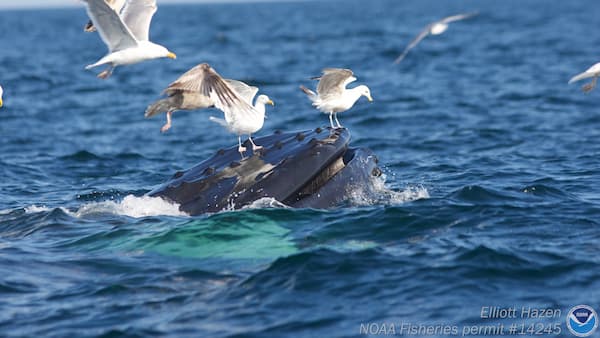
Expert bird photographer Peter Flood, a volunteer with the Stellwagen Sanctuary Seabird Stewards program at Stellwagen Bank National Marine Sanctuary, will relate stories of capturing sanctuary seabirds in images. He will also review the diversity of seabirds in local waters using his collection of amazing photographs.